Purchasing a rural property for the first time can be as unfamiliar as it is exciting. Many people choose to live rurally for a change of lifestyle and pace. This article is designed to inform readers of the common and not so common aspects of purchasing into a rural property and how to best prepare for them.

As with all property transactions, a Conveyancer can help you understand the variables between properties and the Contract of Sale.
- Proximity to hospitals, shops & infrastructure
- Aging at the property, access to healthcare
- Ability to resell the land
- Internet connection (potentially only satellite connections are available)
- Trades & services willing to attend the property
- Understanding sewerage and water supply (tank or septic)
- Livestock & fencing
- Access and roads
- Pests & diseases (if you want to grow produce or raise farm animals, you need to be aware of this from possible neighboring farms)
- Chemical contamination
- Soil quality (an agronomist can determine this)
Each rural property is unique and the Contract of Sale will be composed differently.
For example, one property might have poor fencing, no electricity, and no water supply. It’s up to the buying party to perform due diligence to understand the ramifications and cost to resolve these issues before committing to anything.
The selling party can reject, negotiate or accept the new conditions. For items such as fitting electrical and water systems, it is unlikely a vendor will agree to this due to the cost involved.
In regards to rural properties, a Conveyancer will cover everything comprehensively and pay particular attention to:
The title search, and if other title searches are required. These are performed by an independent compliance and risk company. Land titles are an official record of the owner of a property and may also include information on mortgages, covenants, caveats and easements. The title search will also help you understand if the property has building entitlement.
As an example, HLC helped a client acquire a property without building entitlement (the area was flood-prone). Although, this was not an issue for the client, because they simply used the land for grazing.
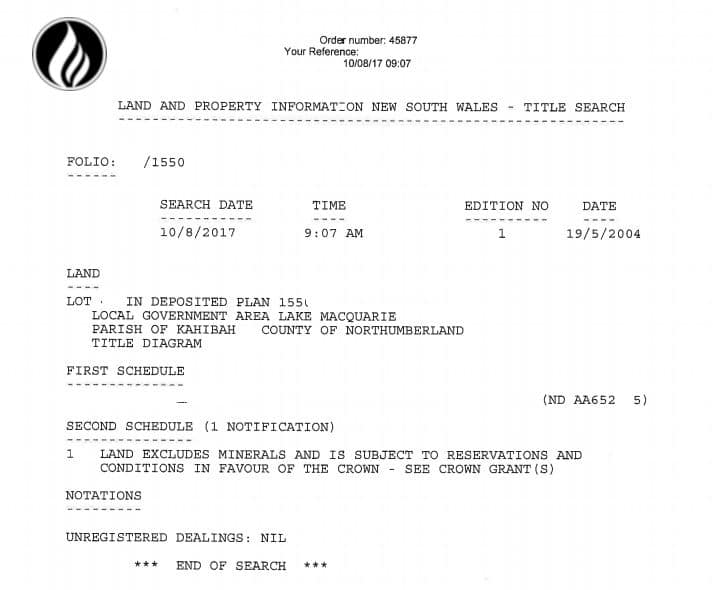
Reviewing the Identification Survey Report. These are also performed by an independent private surveyor who is registered with the respective land registry.
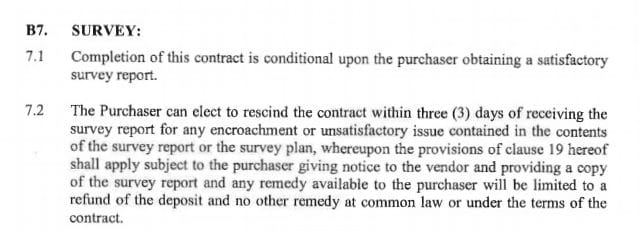
Land covenants.
Land covenants are simply rules on the way land can be used. Rural properties may be subdivided, developed, or have a lot of land covenants. For example, you may be purchasing a rural property for the lifestyle, however, a neighbors land has been sanctioned for farming and they may use fertilisers.
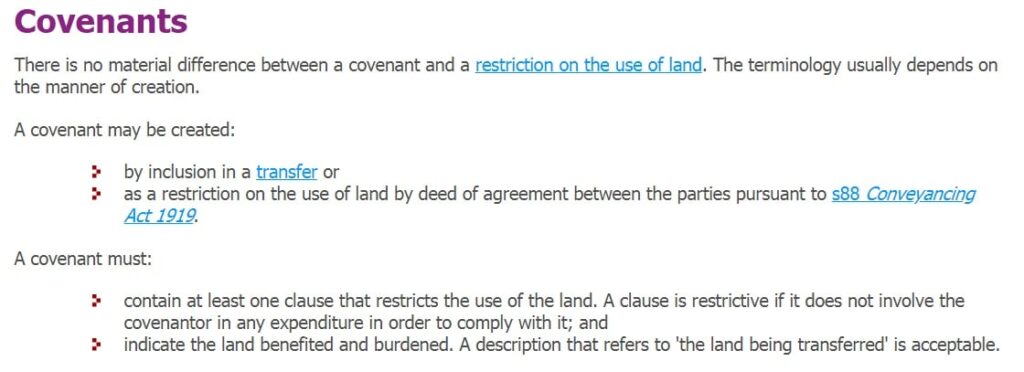
Confirming road access, which is ensuring the road access is registered, and if there are any rights of carriageway applicable (an easement that allows rights for people to drive over a specified area).
In the event a road is unregistered, you could request the vendor registers the road prior to settlement, or perform this after settlement yourself. The former being the most ideal. Road access is noted in the Deposited Plan, which is administered by the respective state land registry.
Readers can gain insight into a property’s road access by viewing it on the NSW Spatial Services mapping system Six Maps.
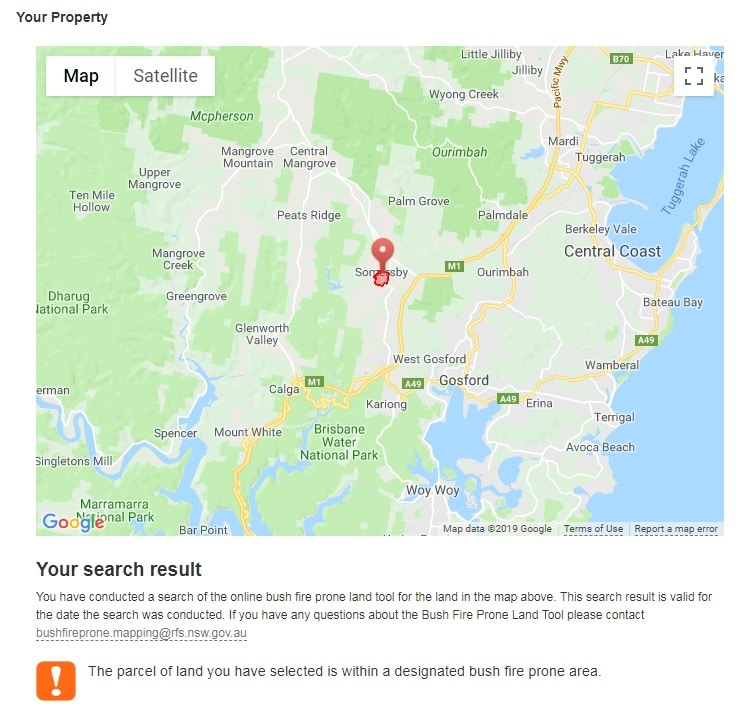
Identify if the area is flood-prone. In NSW, the local councils define the likelihood of an area flooding with support from the NSW State Emergency Service as well as issue flood certificates.
Additionally, some local councils host an interactive map that will allow you to see the flood risk in your area. The city of Newcastle one called “Know Your Flood Risk” which is available here.
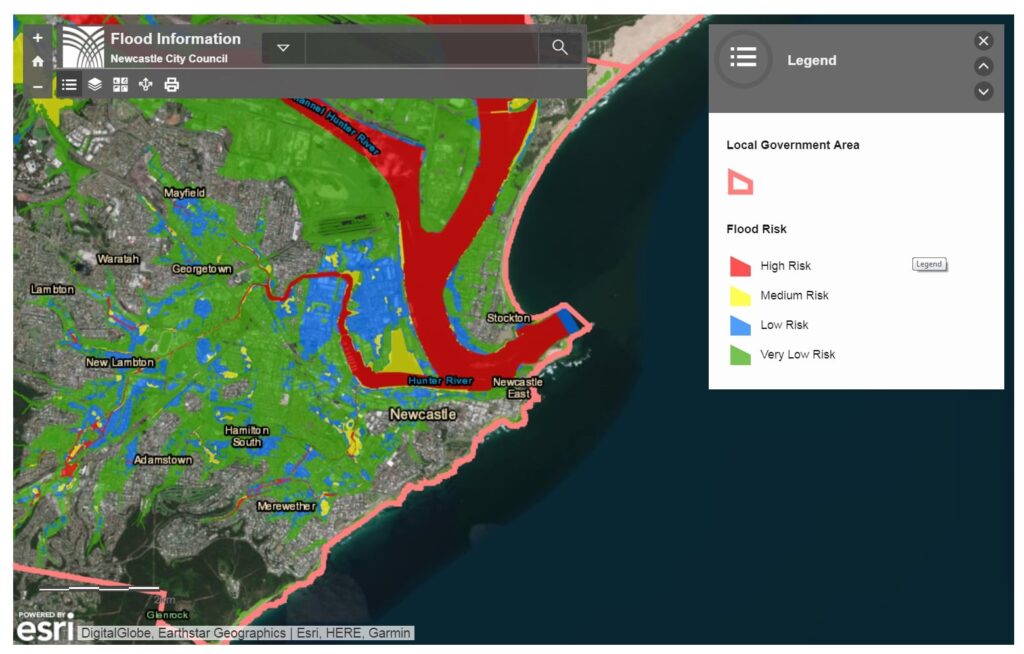
Understanding the property boundaries and fencing situation. For further reading, please see our article on fencing – everything you need to know.
Put simply, a Conveyancer will review the inspections performed on the property to ensure the fencing (whether boundary or for livestock) is adequate, and what action should be taken. It is preferential for the vendor to resolve fencing issues before settlement.
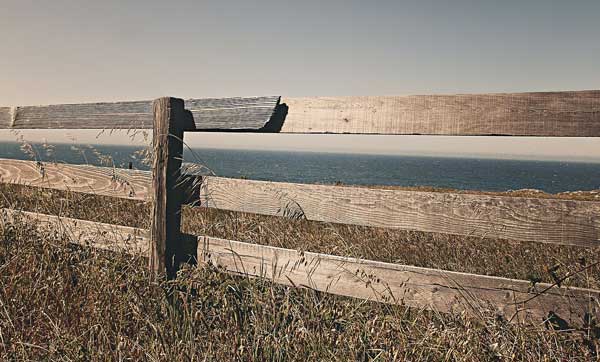
Enclosure permits. These permits allow usage of land that a party does not exclusively possess. In Australia, there is a large amount of Crown Land which is an area that is owned and managed by the respective State Government.
In NSW, crown land and enclosure permits are managed by the NSW Department of Industry. In respect to rural properties, there is often crown land and crown roads enveloping the region.
In the event you need to use the crown land for purposes such as fencing or grazing, you will need an enclosure permit. There may be an existing enclosure permit, or it may require alteration.While this is a rare situation, it should be accounted for.
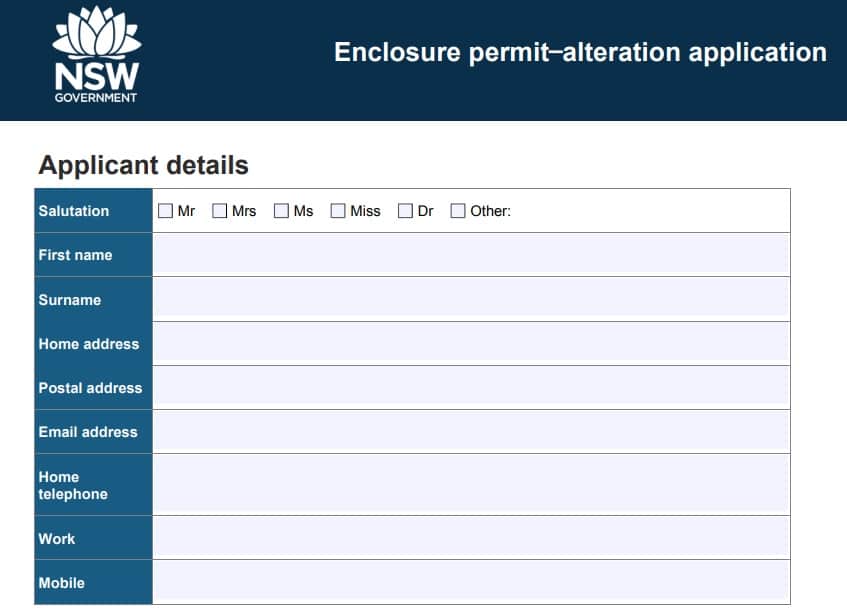
Zoning for rural properties
It is mandatory for a vendor to include a zoning certificate in their contract. The onus is on the Vendor to ensure all information that is being disclosed in the certificate is up to date.
Within the Contract of Sale, the Section 10.7 Planning Certificate will list the zoning and land uses under the relevant Local Environmental Plan. The zoning is defined by the local council and adheres to NSW legislation.
The most common zoning type is generally RU1 Primary Production, which allows for commercial farming on the property.
Rural properties are also commonly R5 Large Lot Residential, RU4 Primary Production Small Lots and RU2 Rural Landscape.
The zoning is variable, it just depends on the property and the council.
We recommend people consider the activities they wish to perform on the property, and work with their Conveyancer to ensure the zoning is appropriate. While the council can change the zoning of an area, this is a rare and challenging task.
The majority of rural properties are already zoned for commercial use.
Final thoughts
Many Australians idolise country living to be closer to nature and the great outdoors.
In an ideal world, a buyer would be totally satisfied with their decision, however, rural life is not for everyone.
As with all Conveyancing process, the best course of action is to perform your research and partner with a professional law firm that will safeguard your interests.
Want Hunter Legal & Conveyancing to secure your next rural property?
- We’ve worked in the Hunter Valley for over 30 years
- Fixed fees with no hidden surprises.
- Mobile and after-hours service.
- We pride ourselves on our communication.
If you or someone you know is purchasing a rural property for the first time, do not hesitate to contact our office to speak with one of our friendly team members today on 1300 224 828.
Frequently Asked Questions
Aspects of rural land use such as development, agricultural use, irrigation, and clearing are governed by the local council and state government agencies such as the EPA (Environmental Protection Authority). Although you may be the registered owner of the land, there are specific rules on what you can and cannot do on the land. It is therefore vital that you check these rules thoroughly before you purchase the land, particularly if you want to use the land for a specific purpose.
You should enquire as to any actual, proposed, or intended easements or rights of way. The plan of the land should alert you to any easements that may impact your use in the future.
Rural Land that does not have access to water is not as valuable. You should check whether the water resources at the proposed property are registered as required by the local government and state laws. A property that requires irrigation licences, water access from rivers, and water bores all need to have obtained the appropriate approvals, and details of the approvals should be included in the contract for sale.
In rural areas, some properties are able to have dwelling houses built on them and others cannot. Determining whether or not a dwelling is permissible on land can be a complex process as many variables exist and no ‘one size’ fits all. You can lodge an application with the council for a ruling on the likely permissibility of a dwelling in accordance with the current LEP requirements.
If you are planning on growing crops or raising livestock on your newly purchased land to sell to third parties, any chemical residue in the soil can potentially destroy your business venture. Some diseases can stay on the land for significant periods after the animals harbouring the diseases are gone from the land. Protection zones will often prohibit certain activities on farms if the land is affected and as such, may affect your ability to keep certain types of animals or stock on the land at all if a significant risk of disease is still present. A Local Land Services (LLS) search will disclose some information regarding this.
Before you commit to the purchase of any rural land, you should ensure that there is a legal right of access to the property. Sometimes what looks like access to the land could just be an easement or a stock route that can be changed by the actual owner of the land at any given time, which may leave you unable to access your land. It is particularly important that confirmation of legal access to the land is obtained if the land is around Crown Land areas, as something that appears to be a driveway or access way to the property could be an “enclosed road”, and although it may look like a normal road it is owned by the government and can be closed by the government at any time, which will result in you being denied access to your property.



